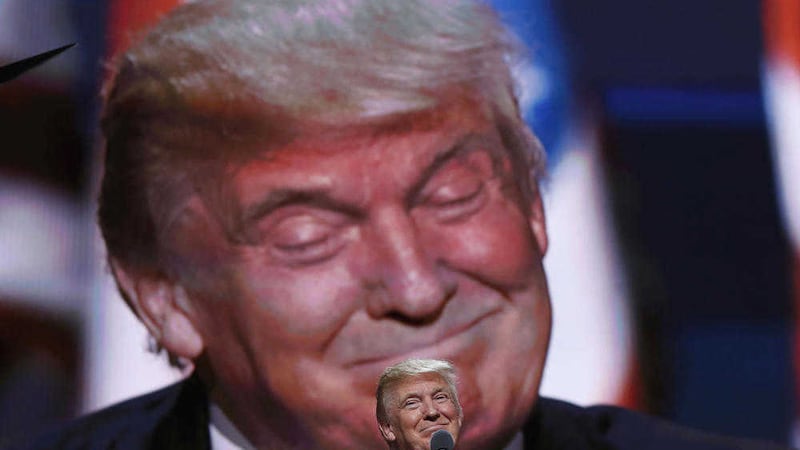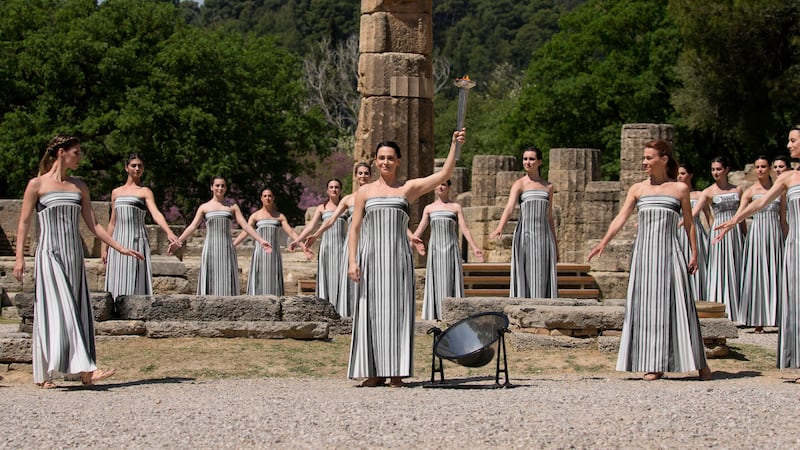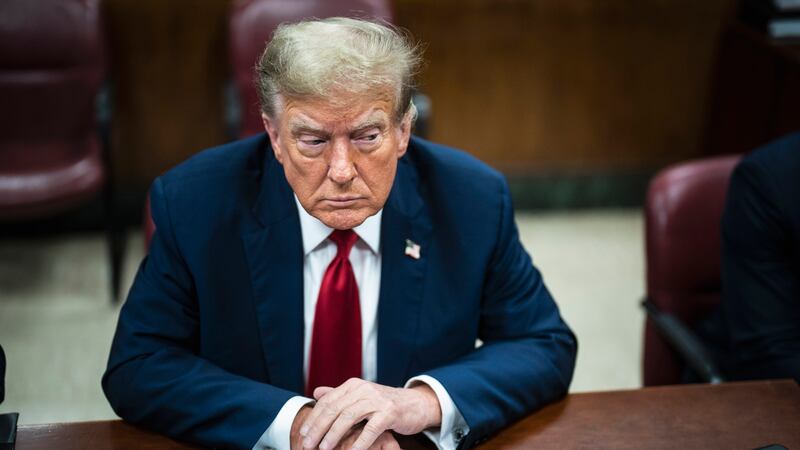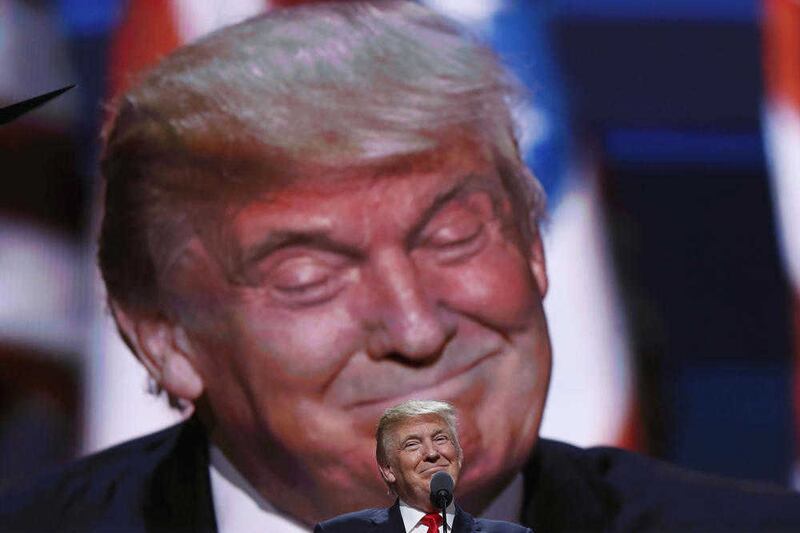DONALD Trump accepted the Republican nomination for president, declaring America in crisis and promising its people they will be safer and richer if he is elected in November.
The billionaire businessman pledged to curb immigration, build a wall along the border with Mexico and save the nation from Hillary Clinton's record of "death, destruction, terrorism and weakness".
The 70-year-old spoke for more than an hour, with his address on the closing night of the party convention marking his highest-profile opportunity yet to heal Republican divisions and show voters he is prepared for the presidency.
Ever the showman, he fed off the energy of the crowd, stepping back to soak in applause and joining the delegates as they chanted: "U-S-A."
Mr Trump declared the nation's problems too big to be fixed within the confines of traditional politics.
"I have joined the political arena so that the powerful can no longer beat up on people that cannot defend themselves," he told delegates in Cleveland, Ohio.
He said: "Our convention occurs at a moment of crisis for our nation. The attacks on our police, and the terrorism in our cities, threaten our very way of life. Any politician who does not grasp this danger is not fit to lead our country."
Underscoring his unorthodox candidacy, Mr Trump set out the hardline immigration policies that fired up conservatives in the Republican contest, but broke with many in his party by promising protections for gays and lesbians.
As the crowd, fiercely opposed to Mrs Clinton, broke out in its usual chant of "lock her up," he declared: "Let's defeat her in November."
Yet he also accused her of "terrible, terrible crimes" and said her greatest achievement may have been avoiding prison for her use of a private email and personal server as secretary of state.
The speech was strikingly dark for a celebratory event and almost entirely lacking in specific policy details. Mr Trump shouted throughout as he read off a teleprompter, showing few flashes of humour or even a smile.
He accused Mrs Clinton, his far-more-experienced Democratic rival, of utterly lacking the good judgment to serve in the White House and as the military's commander in chief.
"This is the legacy of Hillary Clinton: death, destruction, terrorism and weakness," he said.
"But Hillary Clinton's legacy does not have to be America's legacy."
In a direct appeal to Americans shaken by a summer of violence at home and around the world, Mr Trump promised that if he takes office in January, "safety will be restored".
As he moves into the general election campaign, he is sticking to his most controversial proposals, including building a wall along the entire US-Mexico border and suspending immigration from nations "compromised by terrorism".
He took the stage in Cleveland facing a daunting array of challenges, many of his own making.
Though he beat 16 primary rivals, he is viewed with unprecedented negativity by the broader electorate, and is struggling in particular with younger voters and minorities, groups Republican leaders know they need for the party to grow.
The first three days of the convention bordered on chaos, starting with a plagiarism charge involving his wife Melania Trump's speech.
And his former White House rival, Texas Senator Ted Cruz, was booed when he dramatically refused to endorse him from the convention stage.
Then, Mr Trump sparked more questions about his Oval Office readiness by suggesting in an interview that the US might not defend America's Nato partners with him as president.
The remarks deviate from decades of American policy and seem to reject the 67-year-old alliance's bedrock principle of collective defence.
Mr Trump reinforced his position in his speech, from the convention stage, saying the US has been "picking up the cost" of Nato's defences for too long.
He had promised to describe "major, major" tax cuts. But his economic proposals were vague, with unspecified plans to create millions of jobs.
He promised a "simplified" tax system for the middle class and businesses, fewer regulations and renegotiation of trade deals that he says have put working class Americans at a disadvantage.
Senior Clinton aide John Podesta attacked Mr Trump for offering little more than "prejudice and paranoia" and promised she would set out a more positive vision for America when she accepts the party's nomination at its convention next week in Philadelphia.



